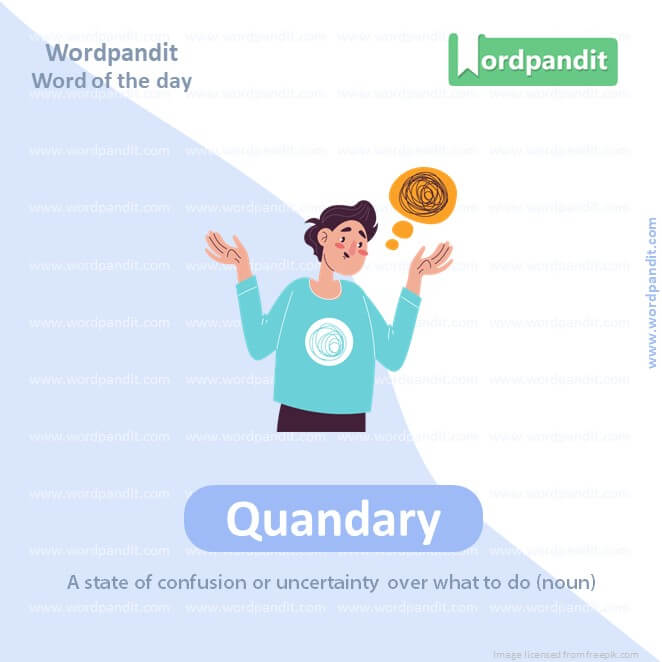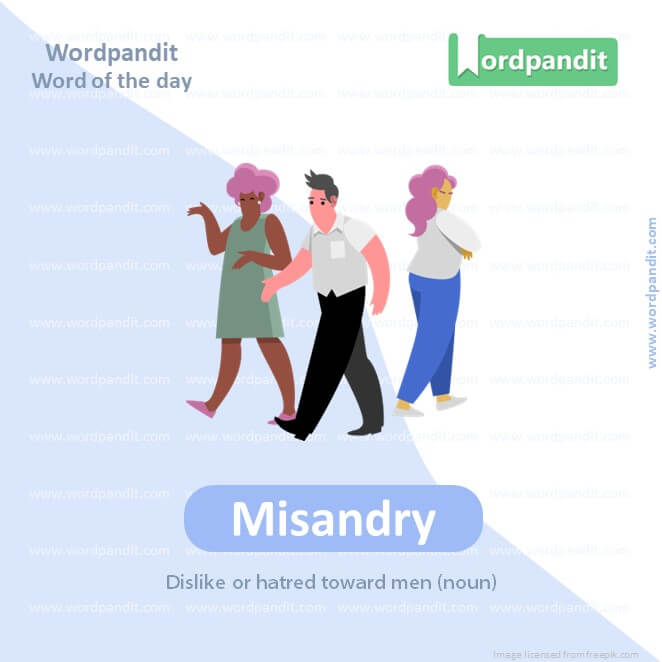Daily Vocabulary Words: List of Daily Used Words in Leading International Newspapers
Hi there. Welcome to this special section @ Wordpandit.
Our endeavour here is very simple: to highlight important daily vocabulary words, which you would come across in leading newspapers in the country. We have included the following newspapers in our selection:
• The New York Times
• The Washington Post
• Scientific American
• BBC
• The Guardian
• Psychology Today
• Wall Street Journal
• The Economist
We are putting in extensive work for developing your vocabulary. All you have got to do is be regular with this section and check out this post on a daily basis. This is your repository of words that are commonly used and essentially, we are posting a list of daily used words. Hence, this has significant practical application as it teaches you words that are used commonly in leading publications mentioned above.
Visit the website daily to learn words from leading international newspapers.

WORD-1: Hastily
CONTEXT: Fortunately, it’s looking the other way, so you hastily prepare to retrace your steps — only to find that a strange man has appeared at the other end of the path.
SOURCE: The Washington Post
EXPLANATORY PARAGRAPH: Imagine putting your shoes on really quickly because you’re late for school. That’s doing something “hastily,” which means in a hurry.
MEANING: Done quickly and without much thought (adverb).
PRONUNCIATION: HAY-stuh-lee
SYNONYMS: quickly, rapidly, hurriedly, speedily, briskly
USAGE EXAMPLES:
1. She packed her bag hastily and rushed out the door.
2. The students hastily finished their homework just before class started.
3. He answered the question hastily without fully understanding it.
4. The workers hastily put up the decorations for the event.

WORD-2: Retrace
CONTEXT: Fortunately, it’s looking the other way, so you hastily prepare to retrace your steps — only to find that a strange man has appeared at the other end of the path.
SOURCE: The Washington Post
EXPLANATORY PARAGRAPH: If you lose your way home and have to follow your steps back to find it again, you “retrace” your steps. It means going back the same way you came.
MEANING: To go back along the same path or route (verb).
PRONUNCIATION: ree-TRAYS
SYNONYMS: backtrack, revisit, follow, repeat, re-explore
USAGE EXAMPLES:
1. She tried to retrace her steps to find her missing keys.
2. They retraced the path they took during their morning hike.
3. He decided to retrace the journey his ancestors took 200 years ago.
4. After getting lost, the travelers retraced their way back to the main road.
WORD-3: Wander
CONTEXT: Assume you don’t want to wander off the trail and into unfamiliar woods. Which do you choose, dear reader? Man or bear?
SOURCE: The Washington Post
EXPLANATORY PARAGRAPH: Imagine walking in a big park and just going wherever you feel like, without a specific path. That’s “wander,” which means moving around without a clear plan.
MEANING: To move around without a specific purpose or direction (verb).
PRONUNCIATION: WAWN-der
SYNONYMS: roam, drift, stroll, meander, stray
USAGE EXAMPLES:
1. The children love to wander through the forest looking for birds.
2. He wandered aimlessly around the mall, just window-shopping.
3. Her mind would often wander during boring lectures.
4. The cat wandered into the neighbor’s garden.

WORD-4: Quandary
CONTEXT: If you’re wondering why I’ve confronted you with this unlikely quandary, the answer, of course, is social media.
SOURCE: The Washington Post
EXPLANATORY PARAGRAPH: Imagine choosing between two favorite candies but you can only have one. That tricky decision is called a “quandary.” It means being confused about what to do.
MEANING: A state of confusion or uncertainty over what to do (noun).
PRONUNCIATION: KWAHN-duh-ree
SYNONYMS: dilemma, problem, puzzle, predicament, uncertainty
USAGE EXAMPLES:
1. The manager found himself in a quandary about whom to hire.
2. They faced a quandary: stay home or risk going out in the storm.
3. Her decision to move abroad put her family in a financial quandary.
4. The company is in a quandary over whether to expand or not.
WORD-5: Hypothetical
CONTEXT: This being a hypothetical question asked by an engagement-hunting influencer, rather than real life, almost all the women chose the bear.
SOURCE: The Washington Post
EXPLANATORY PARAGRAPH: Imagine a story about dragons living in a castle. It’s “hypothetical,” which means it’s an idea or situation that isn’t real but could be.
MEANING: Based on possible or imagined ideas, not real situations (adjective).
PRONUNCIATION: hy-puh-THET-ih-kul
SYNONYMS: theoretical, supposed, imaginary, speculative, assumed
USAGE EXAMPLES:
1. They discussed a hypothetical situation where robots do all the work.
2. His hypothesis was based on a series of hypothetical scenarios.
3. She gave a hypothetical example to explain her point more clearly.
4. The students debated the issue using hypothetical arguments.

WORD-6: Misandry
CONTEXT: There were men complaining about misandry, as though the women in the video were dead serious.
SOURCE: The Washington Post
EXPLANATORY PARAGRAPH: If someone dislikes boys or men just because they’re boys or men, that’s called “misandry.” It means hating or being unfair to men.
MEANING: Dislike or hatred toward men (noun).
PRONUNCIATION: MIS-an-dree
SYNONYMS: male-hatred, sexism, male prejudice, gender bias
USAGE EXAMPLES:
1. The book explores the themes of misogyny and misandry in modern society.
2. Misandry can lead to unfair treatment of men in the workplace.
3. The character’s misandry was rooted in past negative experiences.
4. Addressing both misogyny and misandry is crucial for gender equality.
WORD-7: Arsenic
CONTEXT: But, of course, if we all megadosed arsenic at the same rate we climbed into automobiles, arsenic would kill a lot more people — presumably everyone, except the Amish.
SOURCE: The Washington Post
EXPLANATORY PARAGRAPH: If someone uses a type of poison to keep bugs away from plants, that poison might have “arsenic” in it. It’s a chemical that can be dangerous if you eat or touch it.
MEANING: A poisonous chemical element that can be harmful to people and animals (noun).
PRONUNCIATION: AR-suh-nik
SYNONYMS: poison, toxin, element, contaminant
USAGE EXAMPLES:
1. The soil was found to be contaminated with arsenic.
2. Arsenic is often used as a poison in mystery novels.
3. The scientist studied the effects of arsenic on plants.
4. Drinking water with high levels of arsenic can cause serious health problems.
WORD-8: Denominator
CONTEXT: That larger numerator is spread across a much larger denominator.
SOURCE: The Washington Post
EXPLANATORY PARAGRAPH: Imagine you have half of a chocolate bar and the bottom number in the fraction “1/2” tells you how many parts the whole chocolate bar is divided into. That number is the “denominator.”
MEANING: The number below the line in a fraction that shows how many equal parts the whole is divided into (noun).
PRONUNCIATION: dih-NOM-uh-nay-ter
SYNONYMS: divisor, fraction part, base number
USAGE EXAMPLES:
1. In the fraction 3/4, the number 4 is the denominator.
2. The students learned to find a common denominator to add fractions.
3. If the denominator is zero, the fraction is undefined.
4. Simplifying a fraction means finding the greatest common denominator.

WORD-9: Alienated
CONTEXT: In political terms, however, a ban might anger the 25 percent of usually Democratic Black voters who oppose the ban and whom Mr. Biden can ill afford to alienate in this close election.
SOURCE: The Washington Post
EXPLANATORY PARAGRAPH: If you ignore your friend and don’t talk to them for a long time, they might feel “alienated,” which means left out or pushed away.
MEANING: Made to feel isolated or estranged from others (Verb)
PRONUNCIATION: AY-lee-uh-nayt
SYNONYMS: isolate, distance, estrange, push away, estrange
USAGE EXAMPLES:
1. His rude behavior began to alienate his friends.
2. The strict rules alienated some employees from the management.
3. She felt alienated from her classmates after moving to a new school.
4. The politician’s comments alienated many of his supporters.
WORD-10: Defies
CONTEXT: The notion that the government should bar U.S. Steel from making such a favorable transaction for the sake of what amounts to “vibes” defies reason.
SOURCE: The Washington Post
EXPLANATORY PARAGRAPH: If your parents tell you to clean your room and you refuse to do it, you’re “defying” them. It means refusing to follow rules or expectations.
MEANING: Refuses to obey or accept something (verb, present tense).
PRONUNCIATION: dih-FYZE
SYNONYMS: resists, opposes, disobeys, challenges, rebels against
USAGE EXAMPLES:
1. The child defies his parents by refusing to do his homework.
2. The team defies the odds and wins the championship.
3. The hero defies the villain’s orders and saves the town.
4. Her creativity defies conventional artistic norms.
Vocabulary Hard Words
The experience of unraveling the depths of language learning often leads us to ‘vocabulary hard words’. These challenging jargons might seem daunting initially, but with the right learning strategies, the enigma of ‘vocabulary hard words’ can turn into an enticing quest. But how can these ‘vocabulary hard words’ be learned effectively?
Firstly, to master ‘vocabulary hard words’, it’s vital to break down the process into manageable steps. Instead of tackling several words at once, focus on understanding a few each day. This gradual approach ensures effective retention and understanding.
Multimedia resources tremendously aid in comprehending ‘vocabulary hard words’. Movies, podcasts, or even music in the target language contribute a comprehensive perspective. They provide real-life contexts and usages of ‘vocabulary hard words’, making them more understandable and less intimidating.
The incorporation of memory-enhancing techniques, such as flashcards or digital apps, can significantly bolster the retention of ‘vocabulary hard words’. Such tools encourage active recall, helping to cement these words into your long-term memory. Mnemonic devices can also aid in making these words more approachable by associating the hard words with relatable images or stories.
Practice is decisive when learning ‘vocabulary hard words’. Using these words in your conversations, written communications, or even social media posts will facilitate a robust understanding and recall.
Finally, do not worry about making mistakes while using ‘vocabulary hard words’. Mistakes are essential stepping stones in the learning process. They provide insights into areas that need more focus and help refine your grasp over these words.
In conclusion, grasping ‘vocabulary hard words’ is undoubtedly a challenging task but not an insurmountable one. With the aid of effective strategies including graded learning, multimedia resources, memory-enhancing tools, and regular practice, the process of mastering ‘vocabulary hard words’ can become an engaging and rewarding journey.











